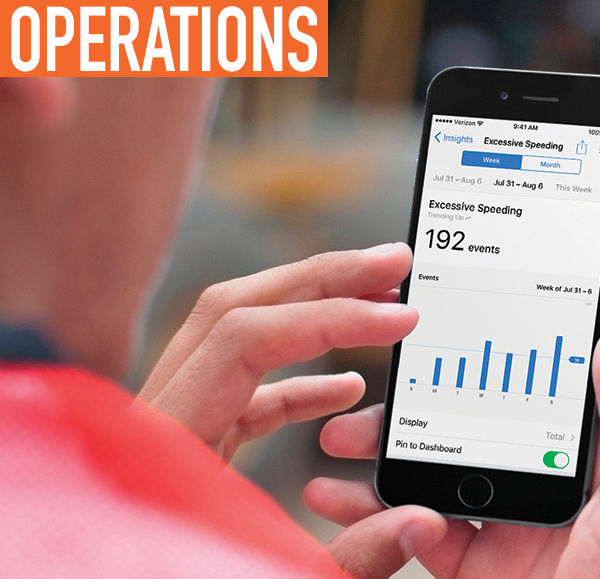According to the Diesel Technology Forum, diesel moves approximately 90% of the nation’s freight tonnage, and nearly all highway freight trucks are powered by diesel engines. However, it’s no secret that diesel fuel can harm the environment. While the Environmental Protection Agency (EPA) and the National Highway Safety Administration (NHTSA) have taken coordinated steps to enable the production of a new generation of clean vehicles, there are many ways fleet managers and owners can take action now to help prevent an increase in the rate of global emissions. Below are some top tips to help ensure a more energy efficient fleet.
REDUCE EXCESS FUEL USE
One of the best ways to minimize the environmental impact is to reduce excess fuel consumption. Given that fuel is one of the greatest expenses for fleet companies, reducing excess fuel consumption has another added benefit: It helps boost the bottom line.
In order to gain a clear picture of how fleets are used, fleet managers and owners can invest in technology that supports fleet tracking and run simple reports that can provide insight into the vehicles that are racking up the most fuel expenses. With this insight, they can also more effectively plan how drivers’ days are scheduled. This helps reduce the number of miles covered each day, resulting in cost savings and increased energy efficiency.
MONITOR DRIVER BEHAVIOR
Fleet management software not only helps to monitor and then minimize fuel consumption, but it can also help to identify how drivers impact overall energy efficiency. Fleet managers are able to easily spot undesirable driving habits such as speeding, idling, and other actions that can waste fuel and other resources. For example, speeding not only puts the driver and other vehicles at risk, but it also reduces fuel efficiency and increases costs.
Business owners are also then able to properly coach drivers, using objective data to ease these often difficult training situations. By getting a clear picture of how drivers perform, managers can reward their best performers for sticking to their Key Performance Indicators (KPIs) and helping the business run more efficiently.
VEHICLE MAINTENANCE
Taking a proactive approach to vehicle maintenance ultimately can help vehicles run more efficiently and waste less fuel, as well as decrease the likelihood that vehicles will need to be taken off the road for unscheduled repairs. Fleet management systems allow businesses to stay on top of vehicle health and receive preemptive maintenance alerts. These services can track key indicators such as engine on-time and mileage depending on the type of service a vehicle may need and also include a reporting suite that issues alerts and emails once a vehicle hits a point where maintenance might need to be checked.
NEAR REAL-TIME DATA
Near real-time data not only helps drivers find the best and quickest routes to cut down on wasted fuel, but it can also be used to plot out which driver is closest to the job to optimize operations across the entire fleet at any one time. By driving energy efficiency gains in this area, managers can also improve customer service by providing more accurate estimated times of arrival to customers.
SMALL CHANGES COUNT
Making the fleet more energy efficient and environmentally conscious is essential and can be easier than it sounds. Businesses may quickly see results by making small changes to cut down fuel waste, optimize routes, and change driver behavior. By increasing energy efficiency, other key business priorities will also start to improve, from customer satisfaction to cost savings.
FOR MORE INFORMATION:
Todd Ewing, director of product management for Fleetmatics, a Verizon Company, has more than a decade of experience in B2B software and vehicle telematics. Find out more, visit www.fleetmatics.com.
_______________________________________________________________________
MODERN WORKTRUCK SOLUTIONS: JANUARY 2018 ISSUE
Did you enjoy this article?
Subscribe to the FREE Digital Edition of Modern WorkTruck Solutions magazine.
![]()




